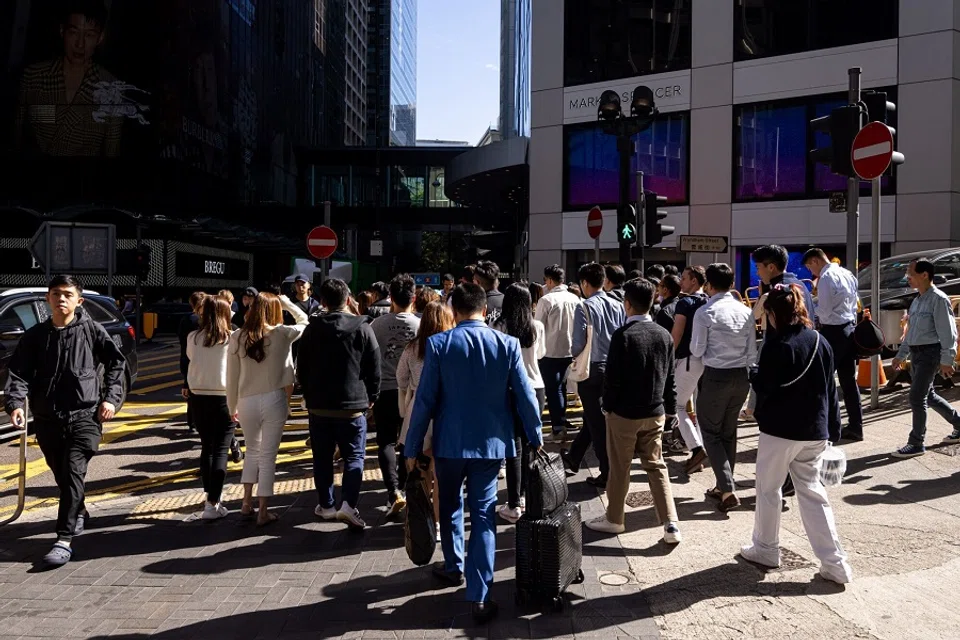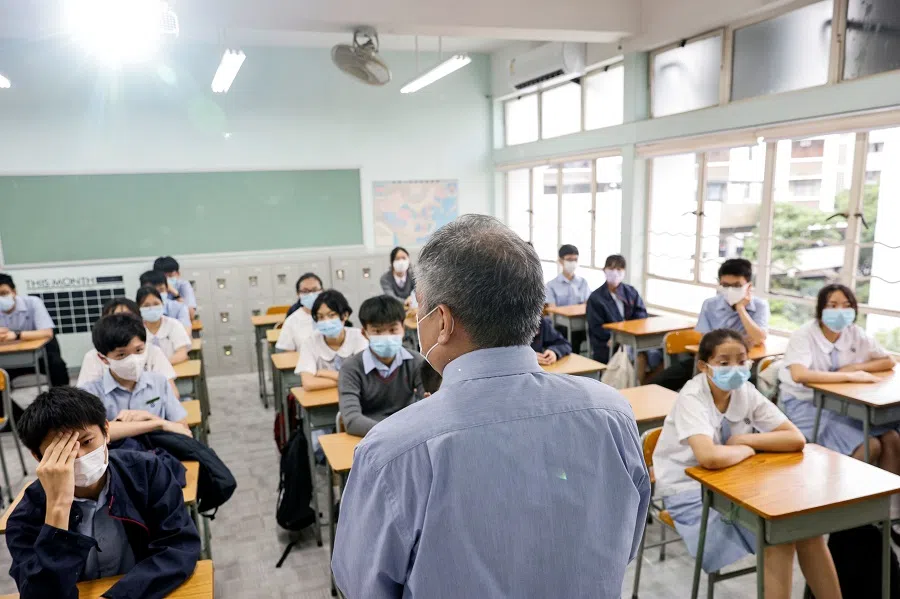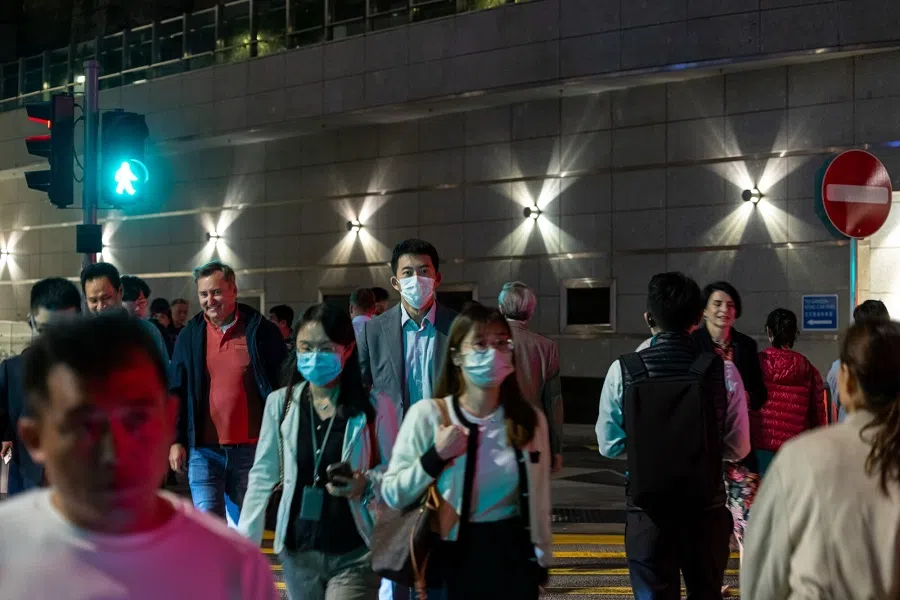Rise of youth suicides in HK: Academic and unemployment woes
Youth suicide rates are on the increase in Hong Kong, with stresses such as academic pressure and unemployment woes some of the key factors. While the issue is multifaceted, giving hope and promoting mental well-being is a project that everyone in society can work on together.

The recent increase in suicide rates has become a major public health issue in Hong Kong. The city has experienced a significant rise in the suicide rate, which currently stands at 14.5 per 100,000 people, which is 18% higher than that of 2021. Of particular concern is the increase among young people, with rates increasing from 6.2 to 12.2 during the period of 2014-2022.
Studies have identified academic stress, relationship problems and mental health as major contributing factors. Disruptions in relationships, especially between teachers and students, have been prevalent in schools due to the Covid-19 pandemic from 2020-2022, causing much disruption in school life and relationship building, which are very important protective factors for suicide prevention. The epidemic has had a negative impact on mental health, especially for vulnerable, marginalised and underserved groups.
Limits of government measures
When the school term resumed in September 2023, academic pressure began to build up, and trying to catch up with the progress in the curriculum proved to be too much for some. The first three months of the school term saw an increase in suicides among school children in Hong Kong, from university to primary school students. The state of mental wellness has become a major concern, with common issues being youth immobility, unemployment, poverty, insufficient social support and excessive use of social media.
The teachers sometimes have their own mental health concerns as well. An effective population-based programme that addresses the root causes of suicide is needed.

In fact, young people, whether they are in Tokyo, Beijing, New York, London or Singapore, share common concerns in their mental wellness, be it youth immobility, unemployment and poverty, insufficient social (family) support, debt due to over-borrowing from financial institutions and excessive use of social media. All or some of these factors have led to unfavourable mental wellness outcomes.
The Hong Kong government has tried to increase the capacity to provide psychiatric services to students who are not mentally well. However, this is expected to have limited effect as there are not enough mental health professionals. Furthermore, about 70% of suicide cases were not known to the system and it is not easy for teachers to identify them. The teachers sometimes have their own mental health concerns as well. An effective population-based programme that addresses the root causes of suicide is needed.
A sense of hopelessness among young people
Hopefulness is a key element for promoting mental wellbeing in the population as it gives one the motivation to overcome their daily stress. It is not helpful and also impossible to live in a stress-free environment. The importance is the ability to build up resilience in the face of stress. However, hopelessness is prevalent among young people, with some struggling to see a way out of their hardships and difficulties. The "lying flat" phenomenon is not uncommon. Perhaps we need to be more empathetic to the needs of our young people.
At present, the youth unemployment rate is high, and their upward mobility is stagnant. Intergenerational poverty is quite prevalent and some of them cannot improve their lives by attaining a higher educational level. This situation is quite damaging to the overall development of the whole society, as the future for our youth will dictate the future of the country. Conversely, if there is no future for our youth, the country has no future.
The suicide rate among unemployed youth in Hong Kong is 15.5 times higher than that of employed youth, and among employed youth, the low-skilled workers have a rate 4.4 times higher than that of professionals.
Hearing the voices of the unemployed
At present, the life chances of low-skilled and unemployed young people in Hong Kong and elsewhere are very bleak. To address the mental health challenge, we need to refocus our priorities and address the root cause of the problem. We need to instill a comprehensive programme that not only addresses the inadequate, fragmented and disconnected mental health services but also nurtures an environment where young people feel a sense of belonging and their voices are heard, and help is available. The importance of social determinant factors in society as a whole has been overlooked.

The suicide rate among unemployed youth in Hong Kong is 15.5 times higher than that of employed youth, and among employed youth, the low-skilled workers have a rate 4.4 times higher than that of professionals.
"Creating Hope Through Action", the theme of this year's World Suicide Prevention Day, reflects the need for collective action to address this urgent public health issue. Family members, friends, co-workers, community members, educators, religious leaders, healthcare professionals, political officials, and governments can all act to prevent suicide in the region. Tangible action is needed to make a difference, which requires more than medical treatment but a societal movement to help those who are less advantaged.
The voices of young people have often been unheard, even on issues that directly affect them.
A need for collective action and hope
Training and education are the most crucial elements for the future of our young people to break the chain of intergenerational poverty. Providing more education opportunities, including vocational training, improves their career prospects. The school curriculum needs to be diversified and inclusive to cater to various types of students. For those who are less academically gifted, opportunities to develop alternative skill sets should be provided. Low-skilled young workers should be given opportunities for in-job training to become highly skilled.
Parents also need to listen to their children, spend more time nurturing relationships and try not to impose their unmet life ambitions on them. It is crucial to provide students and teachers with time and space to rebuild relationships, as this can be a more effective form of support when they are in need. The teachers have also had a serious burnout problem.
The voices of young people have often been unheard, even on issues that directly affect them. The principle of "nothing about us without us" represents the collective voice of our young people. It is important to co-create programmes and initiatives with the younger generation, involving them in decision-making processes.

We need to respond to mental health challenges by emphasising on wellness promotion rather than illness treatment. Prevention is always more effective than cure. Our goal is to raise awareness about the importance of mental wellness, leading to attitude and behavioural change.
Every action, no matter how simple, can connect someone to life and the help they need. Preventing suicides requires us to be a beacon of light for those in pain. With persistence and the maintenance of hope, we can overcome the storms and challenges of life, creating a better society for tomorrow. We all need hope to endure the difficulties we face today.





